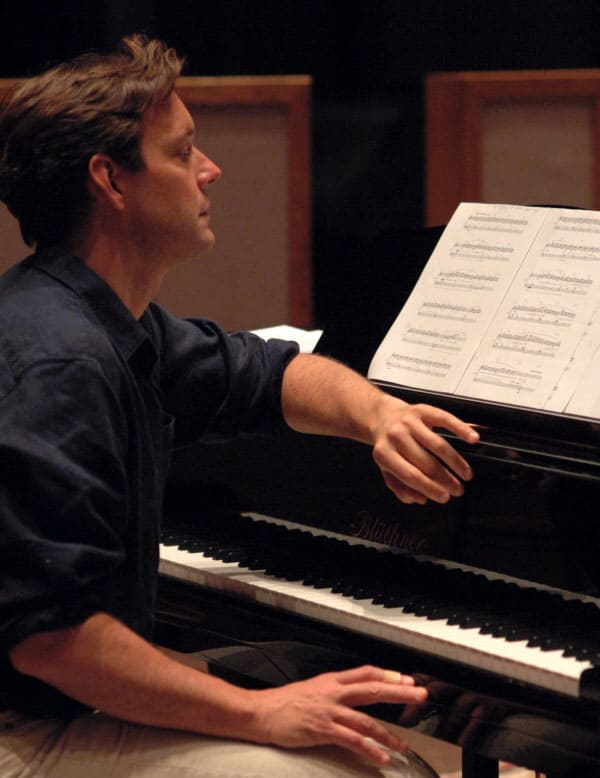
What attracted you to the story, Jake? Is the piece based on the movie [Camille Claudel] about her life?
I am consistently drawn to stories about transformative quests for identity, whether that’s through our own internal struggles, the eyes of another, or struggles that are put upon us by society and convention. I didn’t know anything about Camille Claudel when I saw the movie during its 1989 opening run, but what struck me was that it was a story of a woman struggling to be known on her own, and on her own terms, for the genius that she was given. This was at a time when women were not taken seriously in the role of artist. Only in connection with a man could a woman become known; that’s why 19th-century French [woman] novelist George Sand had to have a male nom de plume.
Camille was a genius, and knew she was. She was a hard worker, and feisty and passionate. Rodin fell for her, and she probably fell for him for a few reasons. She inspired Rodin’s work, and he inspired hers. But as her work grew, so did her paranoia. There really isn’t a happy ending for Camille, except that she is [posthumously] getting her due as a great artist.
…
What part of Claudel’s life does your piece focus on?
Gene [Scheer] and I have chosen one of the most dramatic days of her life, when her family had her committed to the asylum and never went to see her.
…
How is this piece for Joyce [DiDonato]?
I just played it through for her two days ago. She loves the songs — loves them! Actually, because I was writing for her, and I’ve written for her quite a lot now, I’ve really gotten to enjoy exploring melismas and coloratura. I never was a fan of the bel canto period, but suddenly I’ve become a huge fan, because I realized that melismas and coloratura are meditations on a particular word or mood and what it means dramatically. They’re dazzling because they mean something. I really enjoy exploring them, and it’s finding its way into my music more and more. And Joyce is their perfect champion.
How lucky are we to have Joyce fly back for a new piece that has just one concert! And the gift of being able to write for the Alexanders on their anniversary is very special. They’ve not only provided great music-making for so many people, but also done such a service by going to schools, working with children, and illustrating different things. I have great admiration for them.
…
